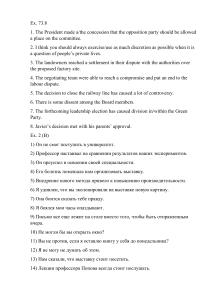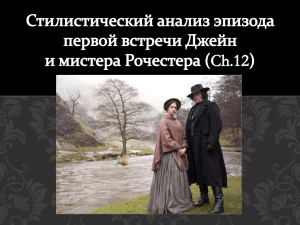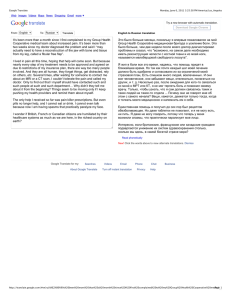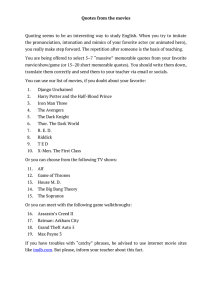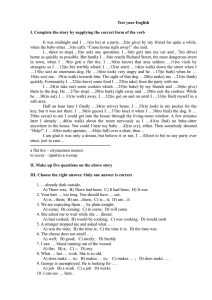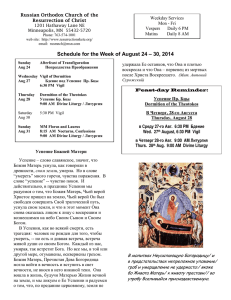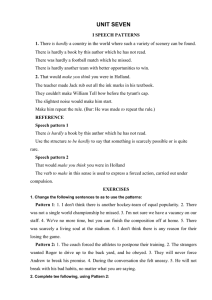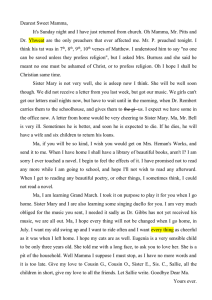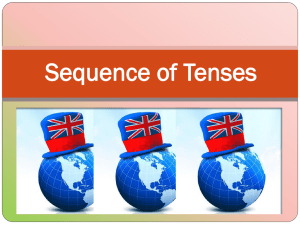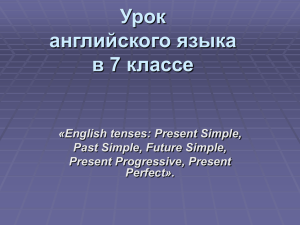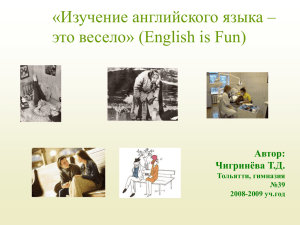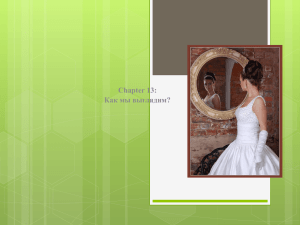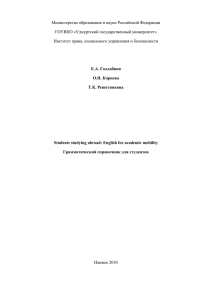Tenses -
advertisement
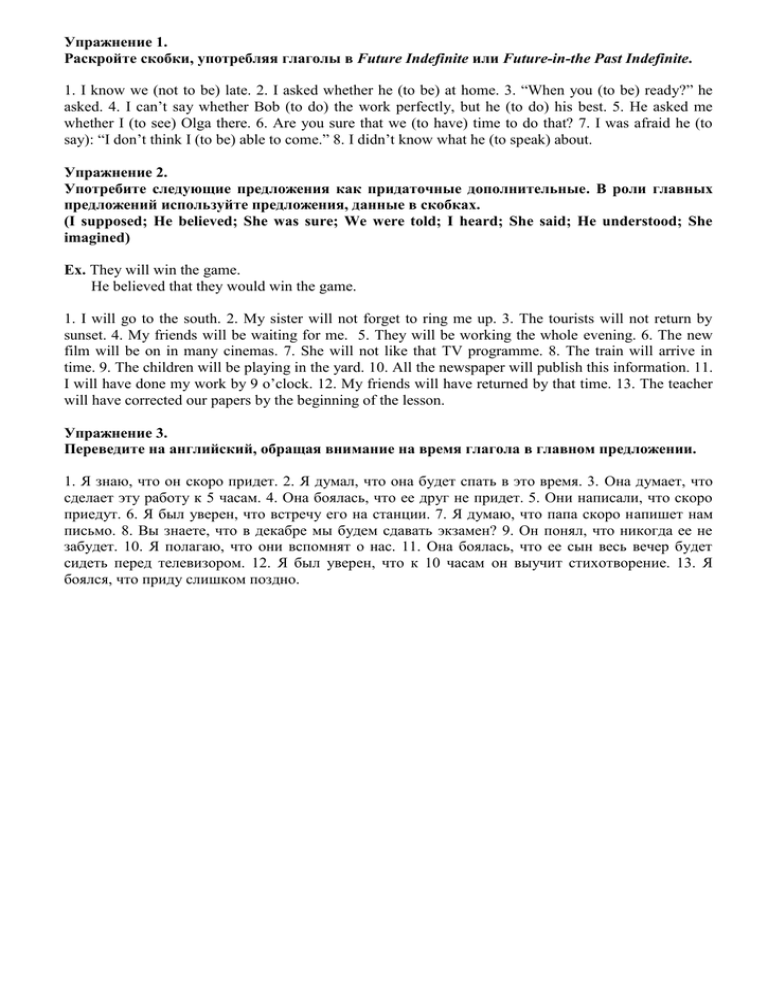
Упражнение 1. Раскройте скобки, употребляя глаголы в Future Indefinite или Future-in-the Past Indefinite. 1. I know we (not to be) late. 2. I asked whether he (to be) at home. 3. “When you (to be) ready?” he asked. 4. I can’t say whether Bob (to do) the work perfectly, but he (to do) his best. 5. He asked me whether I (to see) Olga there. 6. Are you sure that we (to have) time to do that? 7. I was afraid he (to say): “I don’t think I (to be) able to come.” 8. I didn’t know what he (to speak) about. Упражнение 2. Употребите следующие предложения как придаточные дополнительные. В роли главных предложений используйте предложения, данные в скобках. (I supposed; He believed; She was sure; We were told; I heard; She said; He understood; She imagined) Ex. They will win the game. He believed that they would win the game. 1. I will go to the south. 2. My sister will not forget to ring me up. 3. The tourists will not return by sunset. 4. My friends will be waiting for me. 5. They will be working the whole evening. 6. The new film will be on in many cinemas. 7. She will not like that TV programme. 8. The train will arrive in time. 9. The children will be playing in the yard. 10. All the newspaper will publish this information. 11. I will have done my work by 9 o’clock. 12. My friends will have returned by that time. 13. The teacher will have corrected our papers by the beginning of the lesson. Упражнение 3. Переведите на английский, обращая внимание на время глагола в главном предложении. 1. Я знаю, что он скоро придет. 2. Я думал, что она будет спать в это время. 3. Она думает, что сделает эту работу к 5 часам. 4. Она боялась, что ее друг не придет. 5. Они написали, что скоро приедут. 6. Я был уверен, что встречу его на станции. 7. Я думаю, что папа скоро напишет нам письмо. 8. Вы знаете, что в декабре мы будем сдавать экзамен? 9. Он понял, что никогда ее не забудет. 10. Я полагаю, что они вспомнят о нас. 11. Она боялась, что ее сын весь вечер будет сидеть перед телевизором. 12. Я был уверен, что к 10 часам он выучит стихотворение. 13. Я боялся, что приду слишком поздно. Упражнение 1. Раскройте скобки, употребляя глаголы в одном из следующих времен: Present, Past, Future Indefinite; Present, Past Continuous; Present, Past Perfect. 1. When you (to come) to see us? – I (to come) tomorrow if I (not to be) busy. 2. I (not to like) apples. 3. He (to come) home at 5 o’clock yesterday. 4. I (to ring) you up as soon as I (to come) home tomorrow. 5. I (to show) you my work if you (to like). 6. Pete certainly (to help) you with your English if you (to ask) him. 7. This little boy never (to see) a crocodile. 8. Send me a telegram as soon as you (to arrive). 9. Let’s go for a walk. The rain (to stop). 10. If you (to help) me, I (to do) this work well. 11. I always (to get) up at 8 o’clock, but tomorrow I (to get) up a little later. 12. What you (to read) now? 13. As soon as you (to see) your friend, tell him that I (to want) to see him. 14. They (to walk) along the street and (to talk). Suddenly Nick (to stop) and (to say): “What will we do? I (to lose) the key to the door.” 15. When I (to come) to the station yesterday, I (to learn) that my train already (to leave). 16. What he (to do) when you (to see) him yesterday? 17. I (to give) you this book as soon as I (to finish) reading it. 18. When the ship (to cross) the ocean, a great storm (to break) out. 19. You (to go) to the library tomorrow? – No, I already (to be) there. 20. Yesterday I (to put) five apples into the vase. Where they (to be) now? 21. Why she (to sleep) now? She never (to sleep) at this time. 22. Don’t go to Nick’s place now, he (to work). 23. He (to read) a book at 5 o’clock yesterday. 24. Where you usually (to take) books for reading? 25. Mike always (to do) his homework in the evening, but today he (to begin) doing them as soon as he (to come) from school, because his father (to promise) to take him to the theatre. 26. I always (to come) to school at a quarter to nine. 27. What you (to learn) for today? – I (to be) sorry, I (not to prepare) my lesson. 28. When Mary (to come) home, her brother (to read) the book which she (to bring) him two days before. 29. Autumn (to come). It (to get) colder, the days (to get) shorter. It often (to rain). Soon it (to be) very cold. 30. When I (to do) my homework yesterday, I quickly (to run) to the yard because my friends (to wait) for me there.

